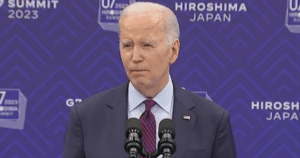Donald Trump Could Exploit Immunity for Presidential Acts, Says Analyst
The U.S. Supreme Court recently affirmed presidential immunity from prosecution related to official acts, and the decision is inciting extensive criticism on the left concerning the potential abuse of presidential privileges.
The Supreme Court decision has engendered controversy by, according to some legal analysts, possibly sanctioning acts like the selling of pardons without prosecutorial recourse, as Newsweek reports.
Commentator Glenn Kirschner brought his concerns to the forefront on his YouTube channel this Wednesday, discussing what he sees as the potential path toward totalitarian practices if Trump were to regain the presidency.
Kirschner Criticizes Court's Alleged Favoritism
Kirschner passionately decried what he saw as an extension of undue privilege to a president, positing the situation as a severe affront to democratic principles. He illustrated a scenario in which he feels the president could exploit his immunity to commercially sell pardons, highlighting the extreme interpretation of presidential powers.
The high court's decision suggests, according to Kirschner, that if considered a presidential power, acts such as selling pardons could avoid criminal prosecution.
Legal Implications and Future Trials
This pivotal ruling comes into play amid ongoing legal proceedings against Trump related to his actions following the Jan. 6, 2021, Capitol unrest and his attempt to dispute the 2020 election results. It renders the chances of Trump facing trial before the upcoming presidential election quite slim, casting a long shadow over the judicial proceedings.
Liberal justices of the Supreme Court, including Sonia Sotomayor, Elena Kagan, and Ketanji Brown Jackson, dissented vehemently with the majority, emphasizing the dangerous precedent they believe the ruling sets for the nation's governance.
Dissenting Voices Highlight Constitutional Concerns
Justice Sotomayor articulated her concerns harshly, suggesting scenarios in which she believes a president, with newfound immunity, could potentially orchestrate severe violations of law without consequence. Her critique painted a grim picture of possible extreme abuses of power that could go unchecked under the new standard.
She further speculated on the potential for a president to misuse military or other grave powers to entrench control, drastically shifting the legal landscape regarding presidential accountability.
Public and Legal Reactions to the Controversial Ruling
Certain voices within the legal community and some factions the wider public are reacting with alarm to the extended scope of presidential immunity, as they believe it sets a blueprint that could potentially be exploited by future officeholders.
The burden of distinguishing an official act from overreach is thus magnified, becoming a central judicial challenge for lower courts.
Final Thoughts on Supreme Court's Immunity Decision
Wrapping up, the implications of the Supreme Court's immunity ruling are both immediate and potentially profound, impacting not only Donald Trump but future presidencies.
The discourse surrounding the decision highlights deep-seated fears on the left of a president wielding unchecked powers, with ramifications for the very structure of U.S. governance.
Kirschner's stark warnings and the dissenting justices' forebodings frame the ongoing debate about the role of a president and the limits of his powers, but that is not to say there are not just as many -- or even more -- voices arguing that the ruling comports fully with the American legal tradition and the manner in which presidential conduct has always been treated.



